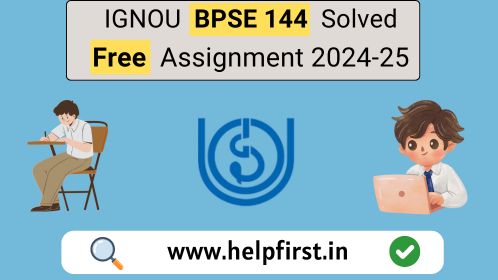BPSE 144
INTRODUCTION TO SOUTH ASIA
IGNOU BPSE 144 Solved Free Assignment
IGNOU BPSE 144 Solved Free Assignment July 2024 & January 2025
Assignment – I
Q 1. Analyse the implications of Cold-war in South Asia.
Q 2. Analyse ethnic conflicts in South Asia.
Assignment – II
Q 1. Explain the implications of Ganga Water Treaty.
Q 2. Analyse China’s policy towards South Asia.
Q 3. Explain major challenges of the neighbourhood first policy of India.
Assignment – III
Q 1. New Taliban Regime
Q 2. Pluralism in South Asia
Q 3. Regional Cooperation in South Asia
Q 4. Social Media in South Asia
Q 5. Global war on Terror
For Answer You Can 👇/ उत्तर के लिए आप व्हाट्सएप कर सकते हैं👇
IGNOU BPSE 141 Solved Free Assignment July 2024 & January 2025
IGNOU BPSE 142 Solved Free Assignment July 2024 & January 2025
IGNOU BPSE 143 Solved Free Assignment July 2024 & January 2025
